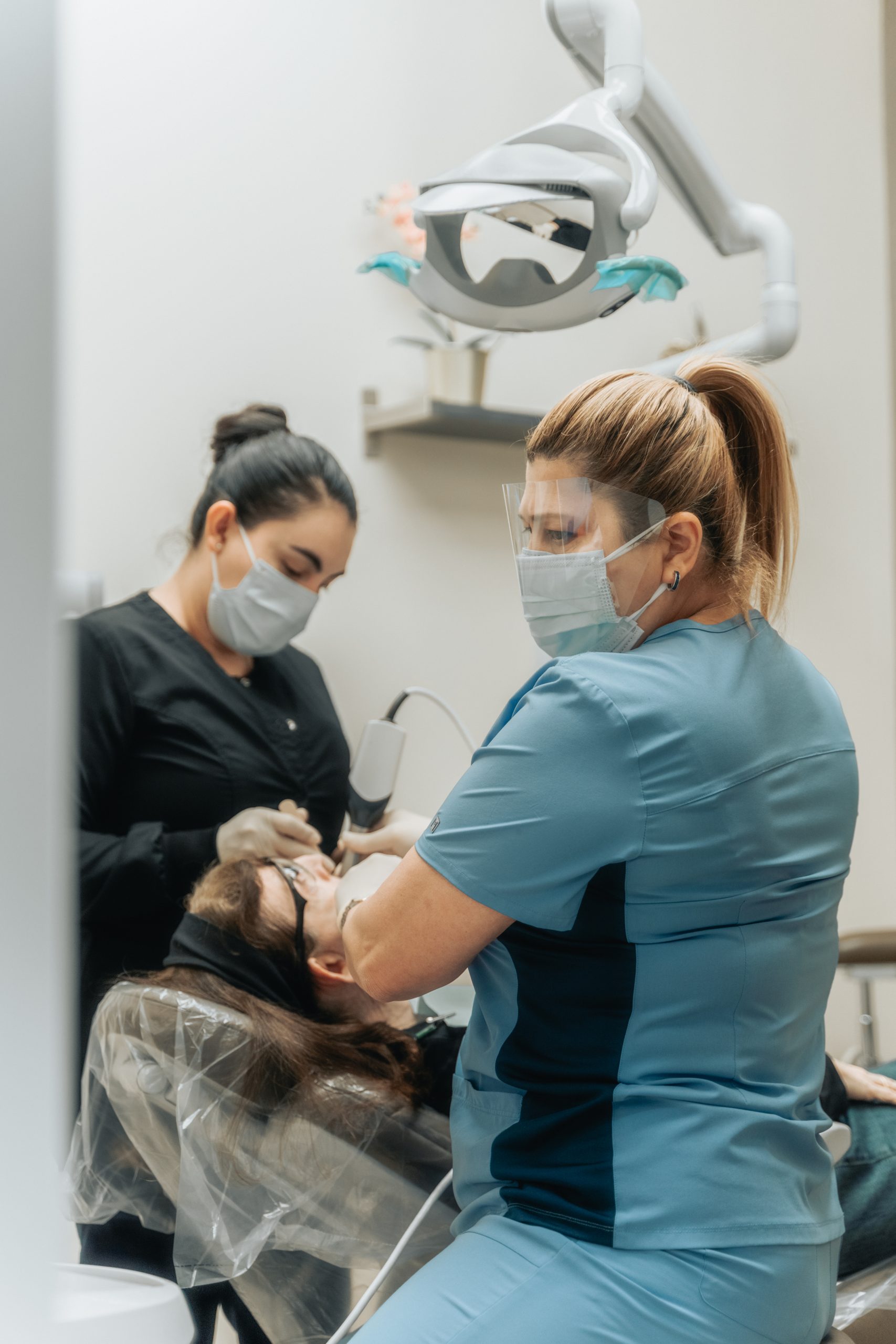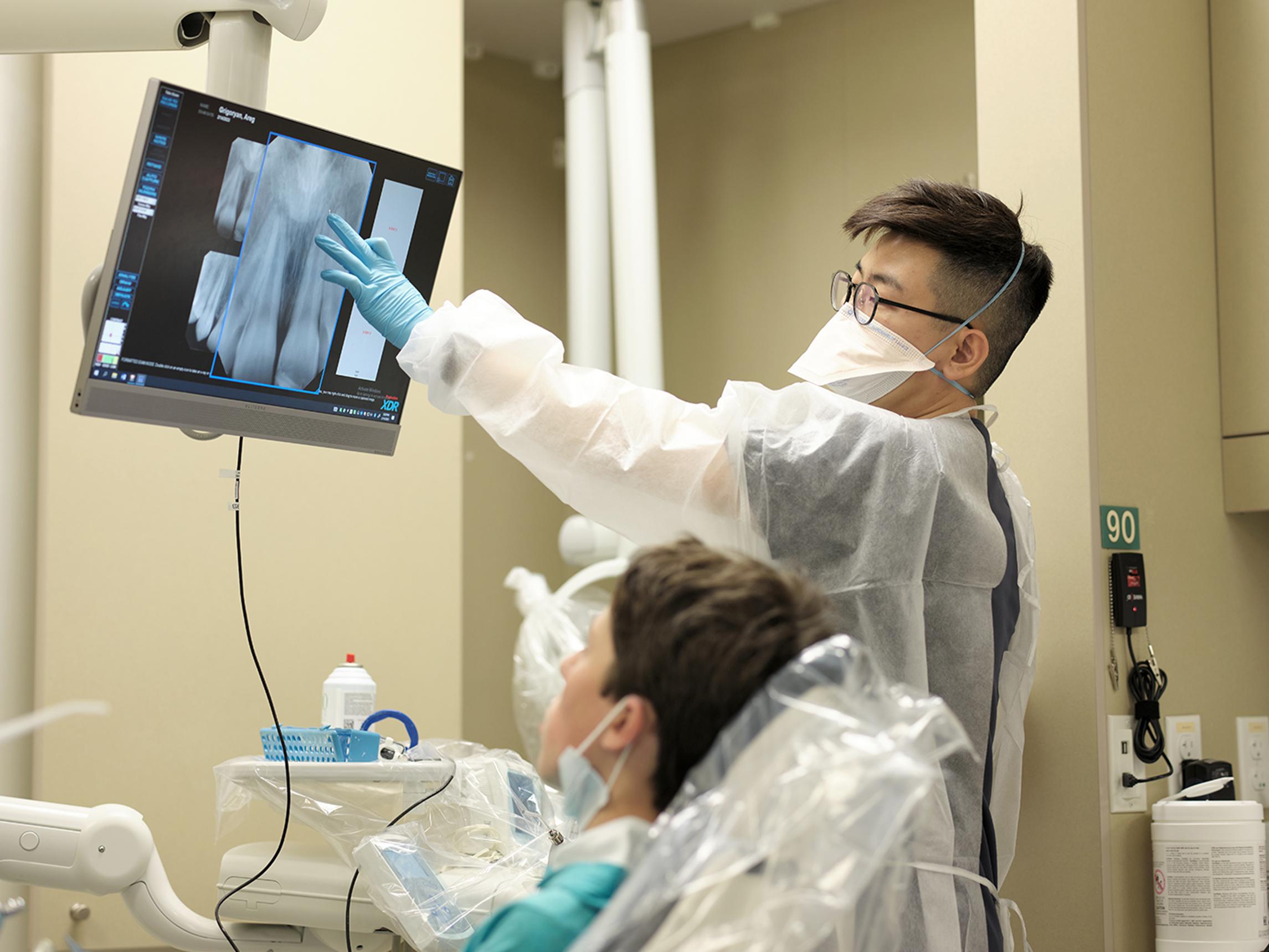Expert Tips for Picking the Right Dentists Eugene for Your Dental Health and wellness
Expert Tips for Picking the Right Dentists Eugene for Your Dental Health and wellness
Blog Article
Learn More About Regular Dental Issues Your Dental Practitioner Can Solve
Understanding constant dental issues is crucial for keeping optimal dental health. Concerns such as dental caries, gum tissue disease, tooth level of sensitivity, bad breath, and tooth degeneration are common yet commonly forgotten till they become extreme. Regular dental brows through and individualized treatment plans can attend to these troubles properly, making sure a much healthier and brighter smile.
Tooth Cavities
Cavities, also called cavities, are a common dental wellness concern triggered by the demineralization of tooth enamel because of acid production from microbial plaque. This process starts when germs in the mouth metabolize sugars and starches from food, producing acids that deteriorate the enamel. Otherwise attended to immediately, this erosion can pass through much deeper into the tooth, impacting the dentin and eventually the pulp, potentially resulting in serious pain and infection.
The beginning of dental caries development often present as white areas on the tooth surface area, indicating preliminary demineralization. As the procedure advances, these areas can establish into brownish or black sores, signifying extra substantial degeneration. Normal dental exams are critical for very early discovery, as cavities in their inceptive phases can be treated with remineralization techniques, such as fluoride therapies.
When a tooth cavity has formed, corrective treatment is needed. Dental practitioners commonly remove the decayed portion of the tooth and fill the dental caries with materials such as composite material, amalgam, or ceramic. In a lot more serious instances, a crown or origin canal treatment may be called for. Safety nets, including good oral health techniques and dietary alterations, play a crucial function in mitigating the risk of tooth cavities.
Gum Condition
While cavities represent a significant concern for dental health, one more crucial issue that requires attention is gum illness. Understood as periodontal disease, periodontal condition is an inflammatory condition affecting the cells surrounding and supporting the teeth. It is largely triggered by the buildup of plaque-- a sticky film of germs that bases on teeth.
Gum tissue disease advances via stages, beginning with gingivitis, defined by inflammation, swelling, and bleeding periodontals (dentist eugene oregon). If left unattended, gingivitis can escalate to periodontitis, where the internal layer of the gum and bone retreat from the teeth, creating pockets that end up being contaminated. Gradually, the toxic substances generated by the germs damage down the bone and connective cells that hold teeth in position, possibly bring about tooth loss
Very early discovery and treatment are important. Expert dental cleansings and boosted dental health practices, such as brushing two times daily and flossing, can take care of gingivitis. For advanced phases, therapies may include scaling and root planing, prescription antibiotics, or perhaps medical treatments.
Normal oral exams play a critical duty in stopping and handling gum condition. Dental practitioners can recognize very early indications and suggest proper treatments, making certain the upkeep of healthy gum tissues and overall dental wellness.
Tooth Sensitivity
Tooth sensitivity impacts countless people worldwide, providing a common yet commonly upsetting dental issue. This condition arises when the enamel, the outer protective layer of the teeth, is compromised, disclosing the underlying dentin. The dentin has microscopic tubules that lead directly to the oral pulp, where nerves live. When subjected to stimuli such as warm, cold, sweet, or acidic substances, these nerves are set off, causing sharp discomfort or discomfort.
A number of variables add to enamel disintegration and subsequent tooth level of sensitivity, including aggressive brushing, acidic foods and beverages, periodontal recession, and bruxism (teeth grinding) Furthermore, dental treatments such as teeth lightening can momentarily increase sensitivity.
Foul Breath
Another common oral issue that influences individuals' everyday lives is poor breath, clinically labelled bad breath. go to my blog Halitosis usually stems from inadequate dental health, which enables food fragments to remain in the mouth, fostering microbial growth.

Suggestions may involve enhancing dental health methods, such as routine brushing and flossing, using antibacterial mouth washes, staying moisturized, and resolving any kind of oral concerns. Reliable management of bad breath not just boosts oral health and wellness however additionally significantly boosts quality of life.
Dental Caries

Stopping dental caries involves a mix of great oral health techniques and normal oral examinations. Cleaning teeth at the very least twice daily with fluoride tooth paste, flossing to get rid of plaque in between teeth, and limiting the intake of sugary foods and beverages are crucial precautionary actions. Fluoride therapies, dental sealers, and expert cleanings provided by a dental professional can also play a significant role in strengthening enamel and preventing degeneration.
Dentists can get rid of corroded cells and bring back the tooth with dental fillings made from products such as composite material, amalgam, or porcelain. By dealing with tooth decay quickly, dental professionals assist preserve dental framework and feature, making sure long-term dental health and wellness.
Conclusion
Attending to typical dental problems such as cavities, gum illness, tooth sensitivity, halitosis, and dental caries is critical for maintaining optimum dental health and total well-being. Dental professionals have the expertise to identify and deal with these problems properly, making sure tailored look after each individual. Routine preventative steps and dental exams are vital in identifying and managing these worries early, advertising a much healthier and more certain smile over a life time.

Tooth degeneration, also understood as oral cavities, takes place when the enamel, the outermost layer of the tooth, is deteriorated by acids created by microorganisms in the mouth. Cleaning teeth at least two times daily with fluoride tooth paste, flossing to eliminate plaque in between teeth, and restricting the intake of sweet foods and drinks are important preventive steps.Resolving common dental worries such as tooth cavities, gum condition, tooth level of sensitivity, negative breath, and tooth degeneration is essential for keeping optimal dental wellness and total health.
Report this page